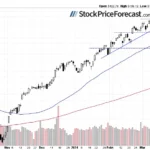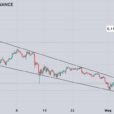

Overview: The global capital markets have taken the US latest tariff threats in stride. Most of the Asian equity markets advanced, including Japan, Korea, Taiwan, India, and Australia. China and Hong Kong were exceptions with marginal losses. European markets are trying to extend their recovery for a third session, but the industry performance is mixed with energy and materials lower, and utilities, consumer staples, and information technology/communication advancing. Benchmark 10-year yields are one-two basis points lower. Oil is paring yesterday’s gains, while weakness continues to be seen in the industrial metals complex. The US dollar is mixed. The Antipodean and Scandis are firmer, while the euro, sterling, and yen have slipped.
North America
General Motors decision to lay off 14,000 workers, close three plants, and end the production of the Volt may not have much effect the nearly $20 trillion national economy but it will be a blow to families, towns, and cities and ancillary businesses. On the national level, its significance outstrips the direct economic impact. It is not as if the tariffs are the only source of pressure on automakers, but they certainly do not help. The steel and aluminum tariffs favor producers. GM and other automakers are consumers of metals. They have cautioned against the tariffs and are opposed to the auto tariffs the President continues to threaten. Using a 12-month moving average, auto sales peaked in early 2016, According to reports, in the first nine months of this year, GM sold 2.7 mln vehicles in China and 2.2 mln vehicles in the US. GM’s success in penetrating the Chinese market is not going to show up much in trade figures but until the modern revisionists, locally produced and locally sold goods were understood as an important part of the US commercial expansion, soft power, and development strategy. GM’s decision offers a prima face case that American industry also may have excess capacity, which raises questions about the likelihood of success in re-shoring the global supply chains.














